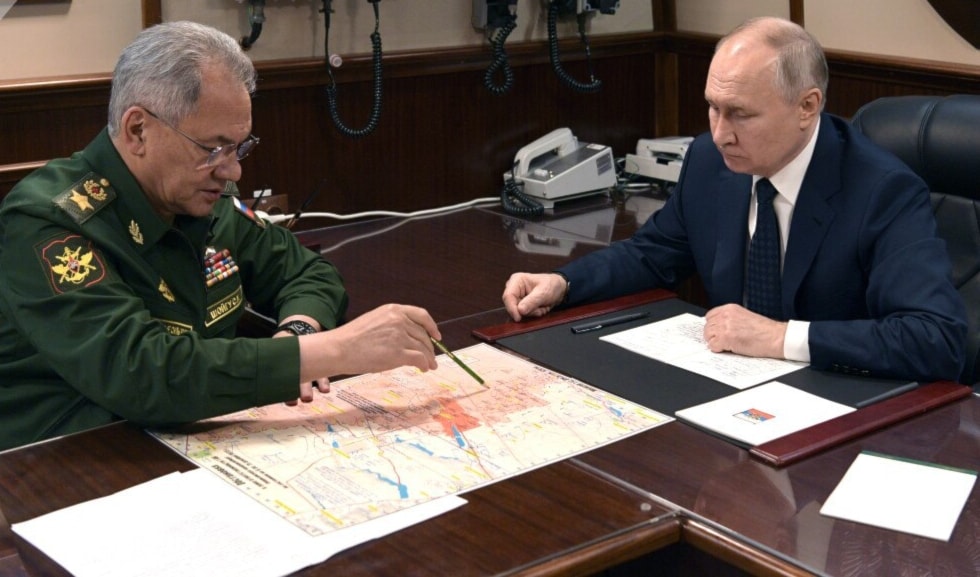Russia declares full control of Maryinka in Donetsk
Shoigu stated that gaining control of Maryinka would allow his troops to "move further in this direction" and "make it possible to protect Donetsk more effectively from strikes" from Ukrainian forces.
-

Russian President Vladimir Putin and Minister of Defense Sergei Shoigu pictured on December 25, 2023, during a meeting on national TV. (Sputnik)
Russia declared on Monday that its forces had achieved the complete liberation of the town of Maryinka in Donetsk. President Vladimir Putin characterized this development as a "success" that is expected to result in reduced shelling in the nearby Russian-held city of Donetsk.
"Our assault units have today completely liberated the settlement of Maryinka," Defence Minister Sergei Shoigu told Putin in a meeting shown on state television.
Drone images displayed on Russian television revealed extensive devastation in Maryinka, showcasing piles of rubble and severely damaged apartment buildings across a wide area. This indicates that clashes with Ukrainian forces were highly intense.
❗️ La libération de Maryinka a au moins deux effets positifs. La première est que nous éloignons les unités de combat ennemies de Donetsk, et la deuxième est qu’en pénétrant dans les zones fortifiées que l’ennemi a érigées depuis 2014, nos troupes peuvent pénétrer dans un espace… pic.twitter.com/AYTXMZzHeR
— Brainless Partisans 🏴☠️☢️☣️🪆 (@BPartisans) December 25, 2023
"I want to congratulate you. This is a success" which gives Russian troops "the opportunity to move into a wider operational area," Putin told Shoigu.
Shoigu stated that gaining control of Maryinka would allow his troops to "move further in this direction" and "make it possible to protect Donetsk more effectively from strikes" from Ukrainian forces.
The Ukrainian counter-offensive launched in June along the southern and eastern front lines has mostly stalled, yielding few successes. Russian forces have further escalated their pressure in recent weeks.
Read more: Russia to prevail in Ukraine war if EU doesn't shift strategy: Borrell
Ukraine was originally part of the Soviet Union's territories but was granted independence as a separate state in 1991 as Moscow aimed to gain approval from the West.
On December 14, Russian President Vladimir Putin said that the war in Ukraine is a "civil war" between brothers and that Moscow entertains historical relations with Ukraine.
However, "after the coup d’etat of 2014, it became clear to us that we would no longer be allowed, by force, to build any sort of normal relations with Ukraine," Putin said.
On November 11, EU foreign policy chief Josep Borrell remarked that the European Union faces several challenges, notably the Ukraine conflict, noting that Russia's defeat in the near term is not anticipated.

 2 Min Read
2 Min Read








